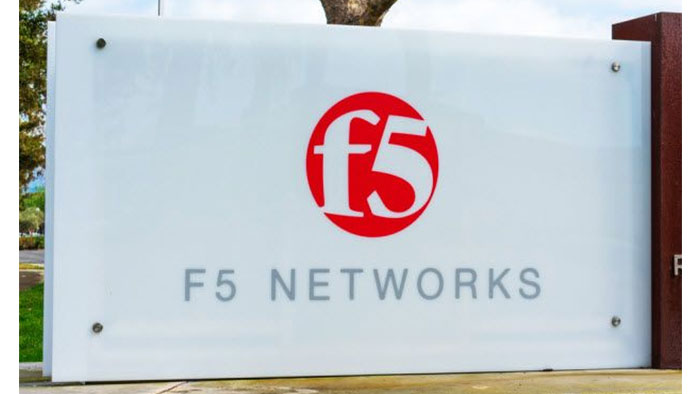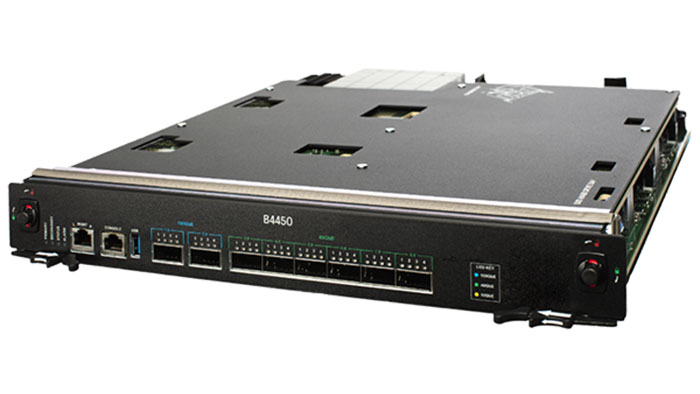VIPRION 4480 License
Home » Security License » f5 » Viprion » VIPRION 4480 License
F5 VIPRION 4480 License
The F5 VIPRION 4480 was designed with carrier-grade reliability for organizations and large companies. With aid for multi-tenant virtualization aid, industry-first 100GbE and 40Gbe ports, and the capacity to feature as much as 4 B4450 blades to its chassis, utility transport community and protection scales as commercial enterprise needs to grow.
With VIPRION, your business benefits from the unique F5 ScaleN architecture and patented hardware and software innovations that offer unmatched functionalities.
ScaleN architecture provides the ability to scale performance as needed, virtualize or horizontally group multiple VIPRION chassis to create an elastic network infrastructure for application delivery that scales efficiently to changing business needs.
Operational Scaling Enables Consolidation The
F5 can virtualize services with a multi-tenant architecture that supports a variety of BIG-IP versions and product modules on a single appliance. Multi-tenant device virtualization is provided by F5’s unique vCMP (Virtual Clustered Multiprocessing) technology, which enables VIPRION to run multiple BIG-IP guest instances. Each BIG-IP guest instance looks and behaves like a physical BIG-IP device with a dedicated allocation of CPU, memory, and other resources. vCMP offers a rate of per guest, which limits bandwidth and SSL, allowing customers to achieve different levels of performance for each guest.
Each vCMP guest can be further partitioned using multi-tenant features such as partitions and routing domains, allowing settings and networks to be isolated per virtual domain. Within each virtual domain, organizations can further isolate and secure settings and policies using a role-based access system for better administrative control.
The ability to virtualize BIG-IP ADC services means service providers and business users can be isolated by the BIG-IP version, allowing for project-based or departmental tenancies and performance guarantees, while maintaining the benefits of managing a single, consolidated server user application delivery platform and increased use of VIPRION systems.
On-demand scaling improves performance
Increase resource capacity and performance with on-demand scaling, where you can simply add more performance to your existing infrastructure instead of adding more devices. The VIPRION chassis offers true linear scalability through modular blades with F5 Clustered Multiprocessing (CMP) technology. As blades are added, their CPU resources, network interfaces, SSL, and compression processing power are automatically made available as settings and policies are copied from the master blade to the new blades.
Application scaling increases resiliency
Increase capacity by adding BIG-IP resources through a fully active approach. With application scaling, you can scale beyond the traditional appliance pair to eliminate the need for expensive, idle standby resources. Application scaling achieves this through two forms of horizontal clustering, application service clustering, which focuses on application scalability and high availability, and device service clustering, which is designed to scale efficiently and seamless BIG-IP application delivery services. Application Service Clustering provides load-aware application-level failover and full connection replication for a high-availability cluster of up to eight heterogeneous appliances.
Workloads can be moved across a cluster of appliances or virtual instances without disrupting other services and can be scaled as needed. Device Service Clustering can synchronize complete device configurations in a fully active deployment model, enabling consistent deployment and policy enforcement across devices with up to 32 active nodes. This ensures a consistent device configuration that simplifies operation.
The ScaleN architecture provides maximum flexibility to scale on demand, virtualize and provide application scaling across appliance clusters. The VIPRION 4480 chassis supports up to four blades.
TMOS offers performance and flexibility
At the heart of VIPRION is the unique F5 operating system called TMOS, which provides a unified system for optimal application delivery, giving you full insight, flexibility and control over all services. TMOS enables VIPRION to intelligently adapt to diverse and changing application and network requirements.
Cluster Management Reduces Management Time
Spend less time managing your application delivery network. For administrators, the VIPRION unit looks like a single ADC. One sheet is automatically selected as the parent sheet and all settings and controls are propagated to the other sheets.When a new blade is connected, it installs the firmware version of the parent blade, copies all of its settings, and begins processing traffic within minutes.
SuperVIP simplifies the network
Instead of having to segment a single, demanding application, VIPRION F5 uses SuperVIP. This is a virtual IP that can span multiple blades within the VIPRION system. A demanding application uses SuperVIP to harness the processing power of all blades in the system.
Virtualized compute structure
Through custom disaggregation, high-speed bridge FPGAs, and an advanced cluster multiprocessing (CMP) design, VIPRION distributes the compute load not just within a blade, but throughout the chassis. The physical interfaces are fully nested. Each port on each blade can be used for any application, allowing the system to be wired for redundancy and simplicity.
Hardware DDoS approach mitigates attacks
F5 uses a collaborative approach of software SYN caching and hardware SYN cookies to protect against large-scale SYN flood DDoS attacks. Using the embedded Packet Rate Acceleration (ePVA) FPGA, selected VIPRION platforms deliver significantly higher performance (up to 640 million SYN cookies per second) compared to a pure software implementation.
When a SYN flood is detected, the ePVA triggers the F5 SYN Check function to prevent invalid sessions from reaching servers or exhausting blade resources. SYN Check is unique in that it can be applied per virtual IP/application, meaning that if one application is attacked, the others are unaffected. F5 is the only ADC that implements hardware-based SYN cookies in L4 mode and L7 full proxy.



